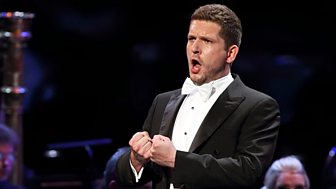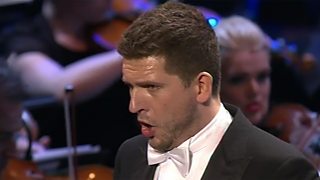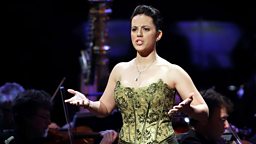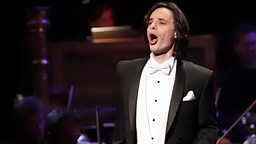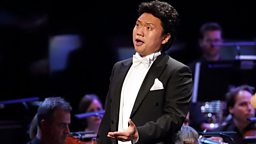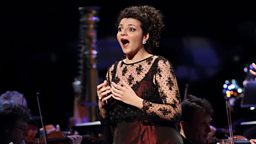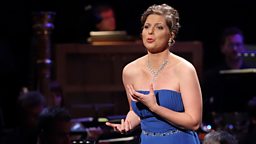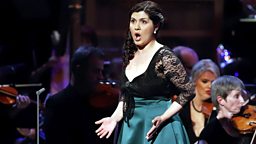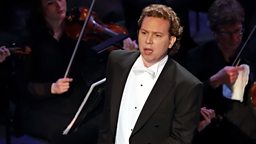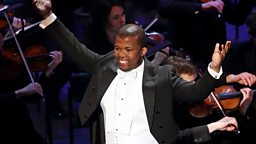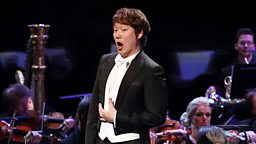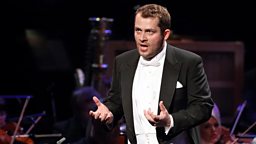Croatia: Marko Mimica
Bass-baritone - born 1987
Marko Mimica graduated from the Josip Hatze Music High School in Split, majoring in trumpet. In 2010 he graduated from the Music Academy in Zagreb as a vocal student, whilst attending private lessons with Vitomir Marof. In 2007 Marko won the 1st prize at the State Competition in Dubrovnik and in summer 2011 took part in the Young Singers Project at the Salzburg Festival.
After his debut with the Croatian National Theatres in Zagreb and Rijeka as Papageno Die Zauberflöte in 2008, Marko has returned there in many roles including Dandini La Cenerentola, Don Basilio Il barbiere di Siviglia, Oroveso Norma, Pistola Falstaff, Ferrando Il trovatore, Monterone Rigoletto, Padre Guardiano La forza del destino, Colline La bohème and Kochubey Mazeppa.
In 2011-12 Marko joined the Deutsche Oper Berlin as a Franz Josef Weisweiler Scholarship holder and he became a permanent member of the ensemble of the Deutsche Oper Berlin this season, performing Masetto Don Giovanni, Zuniga Carmen, Angelotti Tosca, Don Basilio Il barbiere di Siviglia, Raimondo Lucia di Lammermoor, Tchelio L'amour des trois oranges, the title role in Le nozze di Figaro and Verdi’s Requiem.
In his spare time he enjoys movies and books.
- Finalist
Final repertoire
Tutto è disposto … Aprite un po’quegli occhi (Le nozze di Figaro) Mozart
Figaro wrongly believes that his new bride, Susanna, has secretly arranged a romantic assignation with the Count. He angrily warns all men to beware of the fickleness of women – they are roses with thorns.
Uldino, Uldin? … Mentre gonfiarsi l’anima?…Oltre a quel limite (Attila) Verdi
Attila, king of the Huns, is encamped near Rome. He awakes in terror and tells his servant, Uldino, about a terrible dream in which an old man stops him at the gates of Rome, grabs him by the hair and orders him to stop his attack on the holy city.
La calunnia (Il barbiere di Siviglia) Rossini
Dr Bartolo is Rosina’s guardian, and would like to become her husband. He is in cahoots with Don Basilio, Rosina’s music master, who suspects that Rosina and the handsome young Count Almaviva are in love. Here, Don Basilio advises Dr Bartolo to discredit the Count by spreading a rumour about him. In a witty ‘patter’ song, he describes how calumny can start as a breath of wind and end as a storm of scandal.
Frühlingstraum (Winterreise) – Schubert
Come away, come away, Death (Let us garlands bring) – Finzi
Doubt – Glinka
Kaddish (Deux mélodies hébraïques) - Ravel
Thus saith the Lord…But who may abide (Messiah) – Handel
This comes from Part I of Messiah. The recitative is based on the prophecies of Haggai and Malachi – the Lord will shake all nations and will suddenly come to the temple. The aria, which is usually sung by an alto voice, reflects on Malachi’s prophecy, awaiting in fear the Lord’s appearance, for he is like a refiner’s fire.
Vieni, o Levita!...Tu sul labbro (Nabucco, Act II) – Verdi
Zaccaria, High Priest of the enslaved Hebrews in their Babylonian captivity, prays for God’s help in converting the Babylonian princess Fenena, daughter of Nebuchadnezzar (Nabucco), to Judaism.
Sì, vi sarà vendetta… Deh! ti ferma… Que' numi furenti (Semiramide) - Rossini
Prince Assur has helped Queen Semiramide to kill her husband, expecting to marry her and ascend the throne. But she is waiting for another – Arsace – whom only the High Priest knows to be Semiramide’s own son. After the king’s ghost announces that Arsace will be his successor, Assur loses his mind and seeks revenge – he will kill Arsace.
